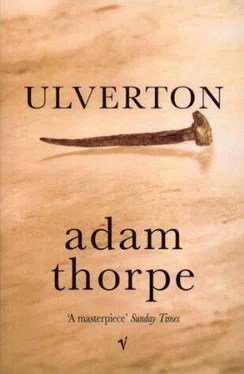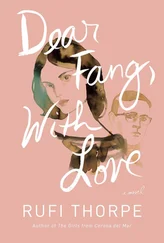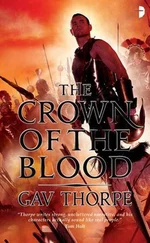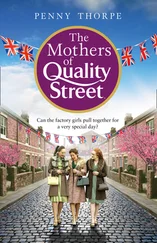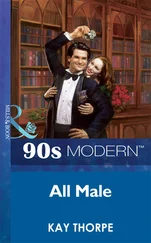He nodded, and I stopped. He was holding a scythe and was in the process of sharpening it on a wooden strickle greased with mutton fat. In those days this was a commoner sight, but I was still new enough to the English rural scene that these simple actions held a fascination for me. Although he was then a young man, the ease with which he swept the strickle along the huge curving blade betokened a lifetime of custom. It was, in fact, because of the way even boys looked as if their working skills had been sunk deep into them that I felt a sense of humility before these humble folk. Many of them were (and still are, in this year of 1928) barely literate, yet they could read things other than words — which are paltry specimens before the rich and complex pages of our ancient country. As our roads are tarmacadamed, and the hills littered with our hideous suburban boxes, one can feel this other knowledge wither as a leaf in frost. Ulverton slumbers on (despite the stinking motor-bus and motor-car), huddled about its white dusty roads; for no one has thought it worthwhile, as yet, to lay a smooth black ribbon through here, for the comfort of the pneumatic tyre, and the discomfort of those who wish to dwell in peace.
To return to the scene: after the usual pleasantries between the even rasps of the strickle, I told him that it was a pity he had decided to keep out of the ‘treasure hunt’. He stopped and straightened up. I had used the term in jest (the Squire had insisted on the academic nature of his interest, which explained the presence of Ernest and his notepad), but Cullurne took it literally.
‘There be the trouble, sir. En’t right, disturbin’ the dead for silver.’
I smiled.
‘We hope for more than silver. We hope for gold.’
‘There. En’t right.’
‘But my dear man,’ I said, a little more seriously, ‘our object isn’t to plunder. We hope to gain knowledge, and a glimpse of the artistic achievements of our forebears. Necklaces, carved artefacts, or whatever. And what’s more, the sight of someone who lived and breathed thousands of years ago on this very soil.’
His features barely altered.
‘An’ passed away,’ he said.
I smiled again. There was no doubting it: the man was as superstitious as they come, and this provoked in me a certain pleasure that such deeply-rooted instincts still held on in a scientific age.
‘Well,’ I replied, making ready to go, ‘if I see the remotest hint of a haunting, I’ll be the first to run blubbering into your cottage. But as it is I am convinced that nothing remains there but the breeze and the grass. I’m in need of the exercise and the change.’
‘Aye,’ he nodded, ‘the master tawld I. It be a gurt loss to you, sir, I ’spect.’
I thanked him for his reflections — the mention of my late wife had cast a pall on the erstwhile subject of our conversation — and continued on down the path until the hiss of the scythe had been obliterated by the summer afternoon’s attendant din: bees hummed over the dog-rose that clung to the ancient brick wall of the estate, and a flock of starlings was already raiding what fruit was spared by the frosts in the resplendent orchard that lay half-hidden behind (about which orchard, and its dark future role in this history, more later).
I paused by the dog-rose, remembering how my wife had looked forward to the gentle scent of this loveliest of English flowers. She had never liked India. Her life consisted of boredom and the anticipation of ‘coming back’ in equal measure. Alas, that the greedy sub-continent had claimed her just a month before I was due to retire! Nature’s laws are importunate and harsh. How she would have loathed it, had she known her final resting-place would be the vast cemetery at Chittagong, under the rattling palms — and not in a green and secluded English churchyard.
I wept a little beside the dog-rose, and felt foolish.
I met the Squire the next day. I was on foot, he was in his latest motor-car, whose breeding appeared impeccable — but I confess that I cannot recall the exact stable. It was large and red and curving, with an impressive brass horn which Allun would apply without fail at every corner, serving much the same purpose as the trumpets sounded before the royal train in days of yore. It had a canvas top which, this being a fine day, was fully lowered; we talked, therefore, without impediment, though I have to say that my eyes were uncomfortably full of the dust that the motor-car had churned up in her wake, and which now gently blew down the high street towards us. I had not wanted to talk with the Chief, but my passing had coincided with Allun applying the brakes very hard to avoid a grocer’s dray at the corner by the church, and the Squire had hailed me from his temporarily stalled position.
I admired his steed, and so on, but soon enough we were conversing on the approaching enterprise. I had expressed a doubt the previous week about my physical prowess, being a gangly fellow the far side of sixty. I returned to this theme by the church but the Squire once again dismissed my trepidations and stated that my exact mind and quiet presence would fully make up for any muscular defects. He slapped the side of the car with great vigour and brought up the subject of Cullurne. I tip-toed about it, but the Squire’s bristly, pale, slightly swollen visage thrust itself towards me; although the dray had clip-clopped off, the road was not yet clear in the Squire’s head. There existed a peculiar dependancy in the mind of our village Chief which thralled both us and him; the lowliest member of the community could exert a hold over the Squire by the merest hint of disapproval. This was the burr that snagged him. If the employees of the Manor did not support his various schemes to the hilt, they were the subject of furious enquiry. Four maids were dismissed for making faces at his steam-powered dining-room trolley. It was thrown out soon after — almost certainly because their ridicule had not, nay, could not be assuaged. This is the reason he preferred furious cajolery on his part to outright rejection: knowing this, the village preferred to let him be, and wore two faces.
‘Impudence, Fergusson! Damned impudence!’
I replied that, having talked to the guilty party the previous day, there were feelings involved which amounted to a kind of religious dread.
‘Absolutely,’ he thundered out, causing Allun in front to wipe the windscreen carefully with a rag, ‘the man’s not only impudent but craven! A lot of bunkum, Fergusson. The man’s about as religious as my left ****!’
Knowing the Squire’s unfortunate capacity for ‘saucy’ talk, and feeling this was a prelude to such, I steered away from further considerations of the theological content of his anatomy, and pointed out that his exacavating ‘team’ was quite sufficient in number, given the size of the barrow. But the Squire’s concern was not with practicalities, but the deeper realms of our soul, those murky darknesses that others’ actions swirl into and slap and clap against: voicing our earliest fears; sounding our pro-foundest terrors.
‘Treasure-hunt!’ came the spittle-spumed response. ‘That’s what they call it, Fergusson. Treasure-hunt! Now where d’you think they got that from, eh? The Vicar and his cronies. Eh? What? Treasure-hunt!’
A great thump on the door of the motor-car, a bark at Allun, and the road swirled once more into clouds, from which tiny chips of granite were expelled towards me — a most suitable afterword. An old man on a bench outside the Green Man inn, by the name of Harry Dimmick, added to the general contamination by expectorating in the direction of what the village termed ‘that bloody stink-pot’ (showing as little sense of differentiation between the various models as I), and cackling in a manner I found alarming.
Читать дальше
